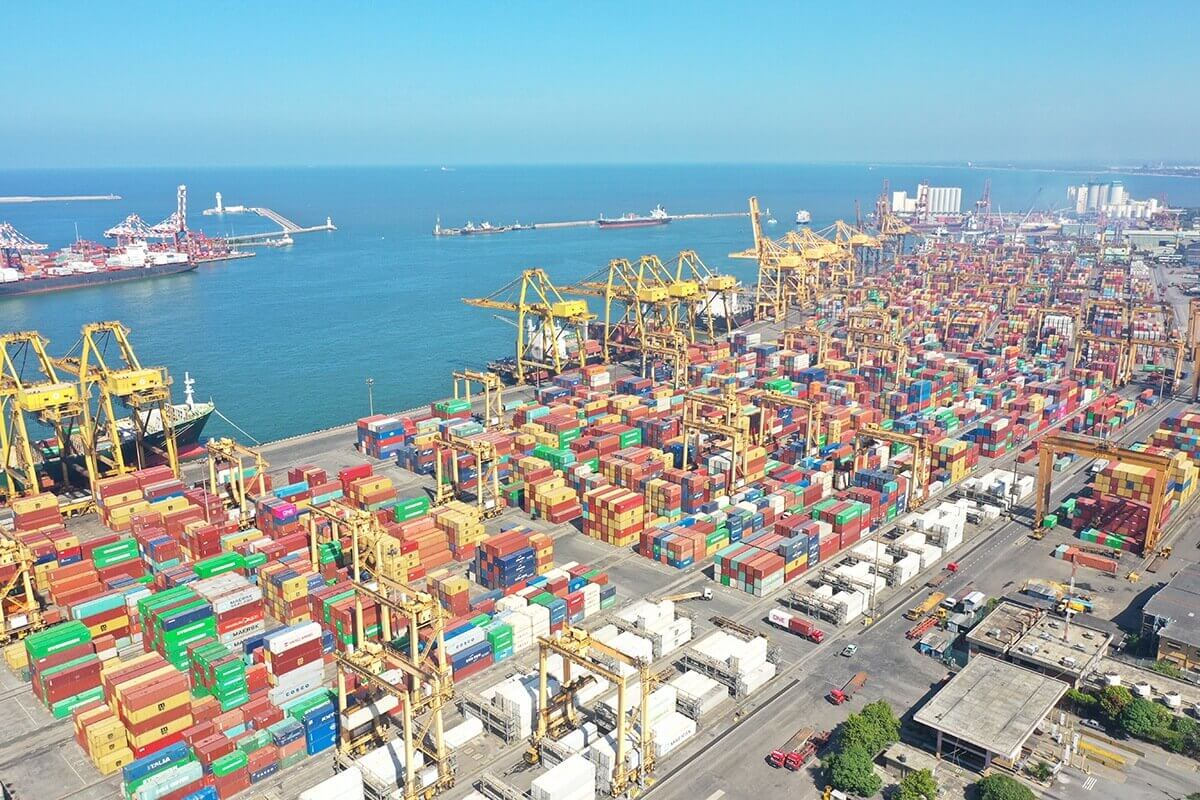Sri Lanka announced that it has decided to call off a trilateral deal with India and Japan which would have allowed the three countries to jointly develop the strategic East Container Terminal (ECT) at the Colombo port. This decision follows weeks of protests by trade unions and opposition parties against the port’s privatisation.
The announcement comes only three weeks after Sri Lankan President Gotabaya Rajapaksa announced his decision to revive this agreement after having previously put it on hold. The deal first came into effect in May 2019, when the state-owned Sri Lanka Ports Authority (SLPA) signed a memorandum of cooperation with India and Japan after almost a year of negotiations. According to the signed Memorandum of Cooperation, once completed, the Sri Lankan government would hold a 51% stake in the project, while the Adani Group in India and other Japanese companies would retain the remaining 49%. Nevertheless, the entire ownership of the port would have remained with the SLPA.
Even though the ECT deal was scrapped, in a bid to appease India, Colombo added that a cabinet meeting following the announcement approved plans to develop the port’s West Container terminal as a Public-Private Partnership (PPP) with investment from India and Japan. While no immediate comment was made by Japan on the announcement, a spokesperson for the Indian Embassy in Colombo said that the Sri Lankan government’s commitment “has been conveyed several times in the recent past, including at the leadership level.” He further added that “Sri Lanka’s Cabinet also took a decision three months ago to implement the project with foreign investors. All sides should continue to abide by the existing understandings and commitment of a trilateral agreement.” Moreover, a day preceding this announcement, the Indian Embassy representative also called upon all parties to keep their end of the bargain. Nevertheless, it remains uncertain if India will accept this trade-off as a Sri Lankan official said that India’s response was “ambiguous” and it was “almost rejecting” the offer.
Speaking about the West Terminal over a phone call, the Sri Lankan official said, “Commercially, the west terminal offer is better for India as it gives 85% stake for developers of the West Terminal against the 49% in ECT. Even if this is the better deal for the investor (including Adani), the final decision has to come from the Indian government. And geopolitically, too, West Terminal is almost the same if they consider the security aspect and the necessity to have a port terminal in Sri Lanka… And West Terminal is no smaller in size or depth compared to the East Terminal… There is no difference between East and West Terminals except for the fact that development of the ECT is partially completed while the development of the West Terminal has to start from scratch.”
For India, it is crucial to expand its influence over ports in Colombo, because around 70% of the shipments in the city are either imported from or are exported to India. Hence, with China’s ambitions and debt trap politics, which include taking over ports in Sri Lanka on exorbitant leases, India has been growing increasingly concerned. One such example is the Hambantota port, which was established by a Chinese company in pursuance of a July 2016 deal and was handed over by the Sri Lankan authorities to a Chinese company on a 99-year lease after Sri Lanka failed to repay a huge loan to China. This particular incident had also sparked concerns amongst several other countries, including the United States and Japan, who are concerned about China’s growing military presence in the Indian Ocean.
The project has faced several hurdles since it was conceived. It was put on hold by the Maithripala Sirisena-led government after he expressed his opposition to India’s involvement in the development of the terminal, arguing that involving “foreign actors” in developing “national assets” remains a sensitive decision. However, in what was perceived as a sign of relief for India, after Rajapaksa came into power, Sri Lanka vowed to revive the deal.
However, despite this assurance, the government was forced to surrender to trade unions, as the movement was gaining the support of other sections of society who were protesting against privatisation. According to a senior cabinet minister, “The pressure was brewing so much that… as if he was becoming so unpopular among the people”. It remains to be seen if the Sri Lankan government can appease national protest against the deal and re-negotiate with its partners.
Sri Lanka Scraps East Container Terminal Deal With India and Japan
Following protests from the opposition party and trade unions, Sri Lanka has called off the deal with India and Japan to develop the strategic East Container Terminal (ECT) at the Colombo port.
February 3, 2021

SOURCE: PORT TECHNOLOGY
